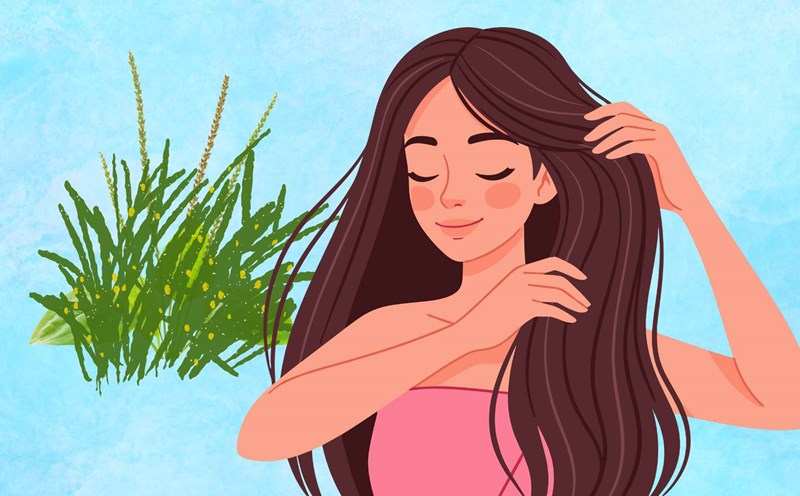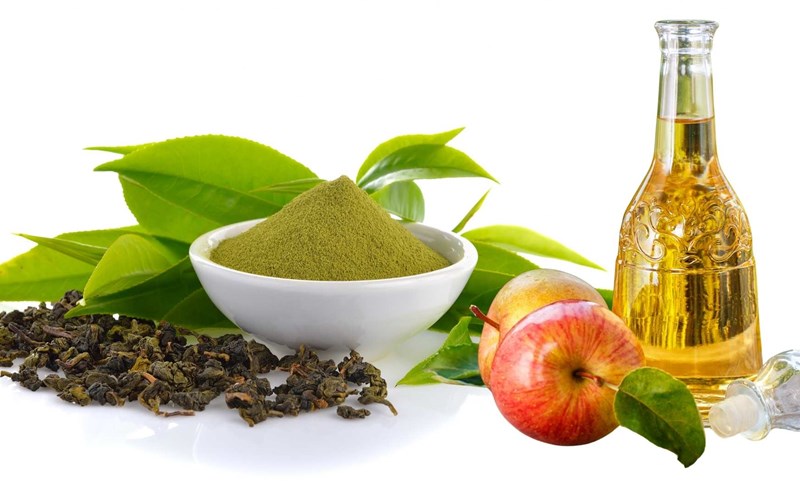1. Keep your scalp moist and clean properly
According to the International Journal of Trichology, shampooing with gentle warm water (about 3540°C) helps remove dirt and sebum effectively without losing the natural oils on the scalp. Washing with water that is too hot will cause the scalp to dry out, the sebum will react by secreting more oil - and that is what makes dandruff appear more.
In addition, you should choose natural shampoos that contain ingredients such as green tea, goji berries, aloe vera or tea tree oil. According to research by the National Center for Biotechnology Information (NCBI), tea essential oil has antifungal properties, helping to control Malassezia fungus - the main cause of dandruff and itchy scalp.
2. hair conditioner with natural oils
Winter is the time when hair is most likely to lose moisture. To fix this, you can curl your hair with coconut oil, argan oil or olive oil about 2030 minutes before rinsing. These oils are rich in vitamin E and natural fatty acids, which help restore damaged hair, while creating a protective layer that moisturizes the scalp.
According to the American Academy of Dermatology (AAD), regular hair care 1-2 times a week not only helps hair shinyer but also reduces peeling, thereby limiting dandruff formation.
3. Nutrition also determines hair health
A nutritious diet plays an important role in nourishing a healthy scalp.Nutritionists from Harvard Health Publishing recommend supplementing B vitamins (B6, B12, Biotin), zinc, iron and omega-3 to balance sebum activity, making hair stronger and less dandruff.
Foods to add to your menu include salmon, eggs, nuts, avocado, and dark green vegetables.
4. Limit styling and drying hair too hot
The cold season causes many people to lose hair naturally and use a dryer at high temperatures. This causes hair to lose moisture quickly and worsens dandruff. Dry your hair in cool air, dry with a soft towel and avoid overusing glue or hair spacer gel.
5. Maintain good daily habits
Wash your hair 2-3 times a week, gently massage to stimulate blood circulation in the scalp, and don't forget to drink enough 1.5'2 liters of water per day. These small habits help keep the scalp healthy, effectively limit itching and peeling.
According to experts from the American Academy of Dermatology (AAD), winter hair care is not only about choosing the right shampoo, but also a combination of moisturizer, nutrition, and a healthy lifestyle. A healthy, damaged hair not only makes you more confident but also reflects the overall health of the body.











